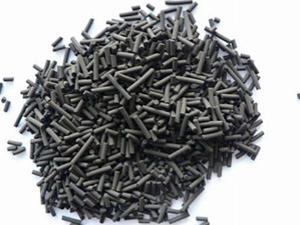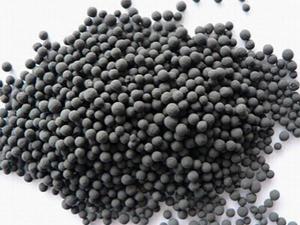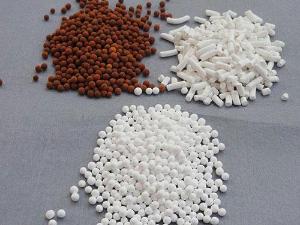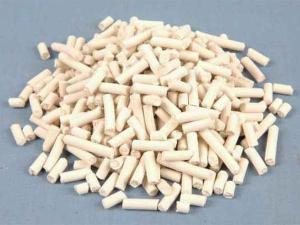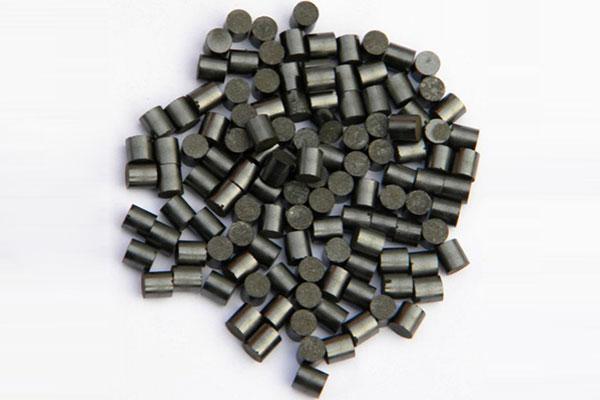
The HTS catalyst has low sulfur contents and finds an extensive application in large-scale synthetic ammonia manufacturing factories. For the first-time usage, the sulfur release time is saved.
Main Characteristics of High Temperature Shift Catalyst
1. High activity
2. High strength
3. Low bulk density
4. Wide usage temperature range
5. Strong condensate water resistance
| Appearance | Black brown column |
| Diameter | φ 9 ×6 –8mm, Φ 6 ×5-7mm |
| Bulk density | 1.4-1.5 g/ml |
| Compositions | FeXOY, Cr2O3, Cuo and other addition agents |
| Activity under 350 o C (conversion rate) | ≥70.0% |
| Crushing strength before reduction | ≥ 210.0N/cm |
| Crushing strength after reduction | ≥ 210.0N/cm |
| Low-strength particle rate (160N/cm) | ≤10.0% |
| Wear rate | ≤ 8.0% |
| Loss on ignition | ≤ 10.0% |
| Sulfur | ≤0.025% |
| Inlet temperature | 280 ℃(max. start-up temperature: 250 ℃) |
| Usage temperature | 300-500 ℃ |
| Optimal temperature | 350-420 ℃ |
| Working pressure | Atmospheric pressure-8.0MPa |
| Space velocity | 600-3000h-1 |
| Sulfur resistant capacity | H2S< 500mg/Nm3 |
| Water-air ratio | ≧0.3 (humidifying system excluded) |
Packaging
1000kg plastic woven bags are used. They are suitable for sea transportation.
You may also find products like:
HTS Catalyst, Waste Gas Shift Reaction, Waste Gas Treatment Catalyst

